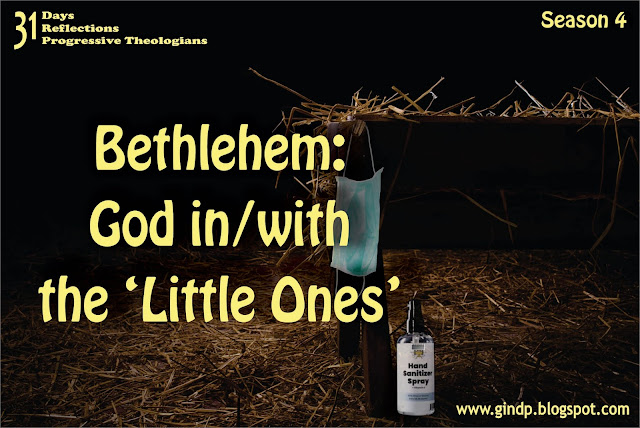Jerusalem is centrally located. Geographically, it stands at the narrow corridor between the Mediterranean Sea and the Arabian Desert. The place of history recorded in the Old Testament is Palestine, which is the corridor between Asian and African continents that were the centers of civilizations at that time: the Babylonian civilizations in Asia and the Egyptian civilization in Africa. Events such as Exodus happened within these continents.
This land's socio-political situation was dirty according to some scholars. They agree, if Josephus, the Jewish historian, was around he would have deemed it dirty. People came from different cultures and introduced different religions, views, languages and this was dirty for the monotheistic Jews who wanted the best of the land.
Time was important: “But when the fullness of time had come, God sent the only begotten Son, born of a woman, born under the law in order to redeem those who were under the law, so that we might receive adoption as children.” Gal 4:4. This verse shows that things were planned in a right way for Christ to come. God in providence, had prepared the world for the coming of Christ and Christianity. This was God’s hour for the greatest event in history- the arrival of God’s son, Jesus Christ into the world.
God had a schedule and the world was prepared politically, culturally and religiously. While God used everyone in general, God used three nation in a very special way- the Romans politically, the Greeks culturally and the Jews religiously. The social, moral and philosophical conditions of the Romans and the Greeks also indirectly played their roles.
The Romans had taken over the (by then) divided and declining territories that Alexander had conquered. During the first century, the whole of Mediterranean empire, North Africa, and the Middle East was controlled by the Roman empire. One person ruled the empire- the emperor who government was based in the capital of Rome.
So, in one way we can say that God chose a dirty place for Jesus to be born. Dirty in every way possible. Even the manger where Jesus was laid was filled with dirty rags and stench coming from the dirty of the animals. Such was the plight in which the messiah of the world was born, in a dirty place yet smiling.
Jesus began to grow within a multi-cultural society where he was exposed to a whole new world order which had now different strands of socio religious values. This played a major factor in his life as he set as the Messiah. Being a Jew, Jesus occasionally encountered with people from different faith traditions who brought a different perspective of life and humanity which was again transformative yet liberative than what Judaism believed in.
This was a dirty world according to the self-confessed teachers of the law. The saviour of the world growing in midst of a culture which was deemed dirty, unfit and heathen by the Jews. Growing in such a society Jesus became sensitive to the real needs which was once ignored by the pharisees and the other religious clowns.
This helped him immensely to value human life and the gospel are filled with examples where he could relate to the pain of others and even had the audacity to break through the once regressive cultural barriers in reaching out to the Samaritans Though the people in Jerusalem lived a grim life of debts and poverty, it also had a hope that this city would reach its finest grandeur in the future. The romans also made this city as one of their main point of communication, thus, boosting its significance.
Jesus’ outlook towards everything underwent a radical change which was not Jewish but holistic in approach. He engaged in an inter faith exchange with the Samaritan woman and gave her blessing and appointing her the messenger to his good news. This was also dirty in the eyes of Jewish men and women as the society is to be protected from what is dirty. Yet the same woman who was called names and was seen as dirty by her peers now becomes the messenger of peace.
Thus, a city which was once considered dirty and ungodly has now become a beacon of hope and sign of positivity in a bleak future. Jesus was born in a dirty environment so that we could become clean. However, 2000 years after His death, Christianity itself has become dirty and is yearning for the saviour who would remove the dirt and make it wholesome again.
Prayer
O loving God, we seek your presence in our lives. We are dirty and we long for cleanliness. Help us remove our doubts and difficulties and lead us to reach out to those who are in the dirt and redeem them in your name.
Author: Sovan Kumar Mallick
About the Author: Sovan hails from Bhubaneswar, Odisha and belongs to the Union Church, an inter denomination church in Bhubaneswar, Odisha. He completed his Bachelor of Theology and Master of Divinity from Lakeview Bible College and Seminary, Chennai and Master of Theology (Church History) from the COTRTS, Vishakhapatnam, Andhra Pradesh. He is presently working as the Department Head for History of Christianity with Filadelfia Bible College Udaipur, Rajasthan.






